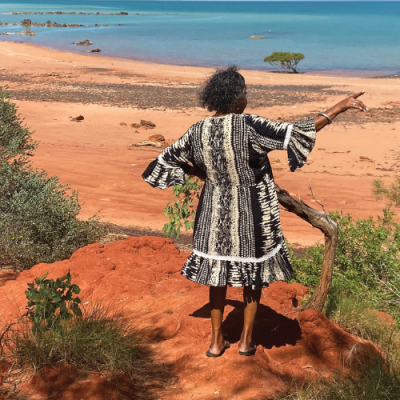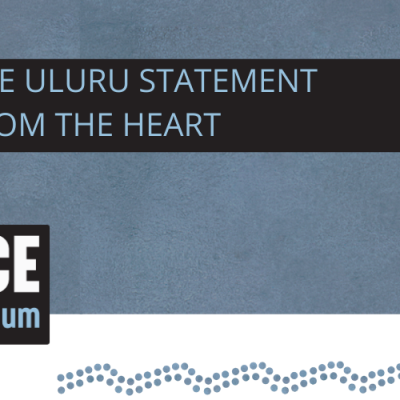Refine results
-
14 December 2012Book page
Bringing them Home - Appendix 7
Established the Northern Territory Aboriginals Department with responsibility for the control and welfare of Aborigines and `to provide where possible for the custody, maintenance and education of the children of aboriginals'. -
14 December 2012Book page
Preventing Crime and Promoting Rights for Indigenous Young People with Cognitive Disabilities and Mental Health Issues Part 4
Indigenous young people with cognitive disabilities and/ or mental health issues in contact with the juvenile justice system get very little attention in literature, in policy and arguably in practice as well. We have seen that this is a forgotten group of young people who are frequently labelled as ‘complex’ (code for too hard to work with) and often receive inadequate or… -
Legal14 December 2012Webpage
Submission to the Green Paper on Homelessness - Which way home?
HREOC commends the Commonwealth government on making homelessness a priority issue and recognising that adequate housing is fundamental to social inclusion. Recognition of homelessness as a human rights issue should assist in the development of policy and programs to address homelessness. -
14 December 2012Book page
Native Title Report 2007: Chapter 2
Whether Indigenous peoples are able to gain full recognition and protection of their native title rights and interests, depends significantly on the process by which native title applications are resolved. -
Aboriginal and Torres Strait Islander Social Justice21 August 2024Publication

Women in Native Title: Native Title Report 2024 Community Guide
This is a Community Guide to the Women in Native Title: Native Title Report 2024. It provides a quick and easy way to understand the full report and its purpose. The report is an account of the experiences, perspectives, aspirations and solutions of First Nations women within the native title system. It takes a person-centred approach, highlighting how native title and related systems impact… -
Legal14 December 2012Webpage
Submission - Access To Aboriginal Land Under The Northern Territory Land Rights Act February 2007
The Human Rights and Equal Opportunity Commission (HREOC) welcomes the opportunity to comment on the Federal Government"s Discussion Paper: Access to Aboriginal Land under the Northern Territory Aboriginal Land Rights Act - Time for Change? -
Aboriginal and Torres Strait Islander Social Justice8 August 2023Webpage

The Uluru Statement from the Heart
The Uluru Statement from the Heart (the Statement) is an invitation from a group of First Nations people to non-Indigenous Australians. Shared in 2017, the Statement calls for substantive reform to help realise Indigenous rights, through the establishment of an Indigenous Voice to Parliament and a Makarrata Commission, to undertake processes of agreement-making (treaty) and truth-telling. -
14 December 2012Book page
Monitoring and reporting on laws and policy - Annual Report 2009-2010: Australian Human Rights Commission
In June 2011, the Commission welcomed action taken by the Australian Government to move a significant number of families and unaccompanied children from immigration detention facilities to community-based detention. -
Legal14 December 2012Webpage
Submissions to parliaments and law reform bodies - Index by Committee
The Commission seeks to promote and protect human rights through submissions to parliamentary inquiries, government departments and law reform bodies. -
Legal14 December 2012Webpage
Date Index - Submissions to the Commonwealth Parliament and law reform bodies
Submissions to the Parliaments and law reform bodies Date Index On the instructions of the Commission, another function of the Legal Section is to prepare submissions to the Commonwealth Parliament. See below for some of the submissions prepared by the Legal Section and other units in the commission: See also Submissions sorted by committee sorted by subject other submissions 2018 -
Legal14 December 2012Webpage
Submission - ‘Towards An Alternative Settlement Framework For Native Title’ (2006)
I welcome the Western Australian Government’s commitment to developing an Alternative Settlement Framework to resolve native title claims, following the standards of recognition and extinguishment set by the Yorta Yorta1 and Miriuwung Gajerrong2 decisions, respectively. I also note the Government’s commitment to a fair and just relationship between the Government and Aboriginal people… -
Commission – General3 September 2024Speech
Law Institute of Victoria Legal Sector Dinner
Our legal system frequently provides unequal access to justice, with varying standards based on one’s identity, location, and financial status. Rights granted by law are ineffective if they cannot be enforced. A speech by Hugh de Krester. -
14 December 2012Book page
Native Title Report 2008 - Chapter 7
Over the millennia, Indigenous peoples have developed a close and unique connection with the lands and environments in which they live. They have established distinct systems of knowledge, innovation and practices relating to the uses and management of biological diversity on these lands and environments. -
Children's Rights14 December 2012Webpage
Children and young people
Most violence is perpetrated against children and young people by someone they know, often in the family. Addressing family violence raises multiple challenges due to its ‘private’ nature and the widespread recognition that the family is the natural environment for its members and should provide physical and emotional safety.[63] -
14 December 2012Book page
Native Title Report 2002: Native title: the way forward
In the past 12 months the High Court has handed down several significant decisions which clarified the principles upon which the recognition and extinguishment of native title are determined. These principles are set out and discussed in the first three chapters of this report. In clarifying these principles, some of the Judges of the High Court have been mindful of their effect on Indigenous… -
Aboriginal and Torres Strait Islander Social Justice11 May 2023Media Release
Aboriginal and Torres Strait Islander women to ‘design’ their future with new national approach to First Nations gender justice
Bold new approaches from First Nations Australian women for improving their future have been unveiled at a historic summit in Canberra, including a new National Framework for Action and a new dedicated First Nations Gender Justice Institute at the Australian National University. The new measures have been highlighted at the Wiyi Yani U Thangani (Women’s Voices) National Summit, Australia’s… -
Aboriginal and Torres Strait Islander Social Justice14 December 2012Speech
Aboriginal and Torres Strait Islander peoples access to services 2010
I would like to start today by acknowledging the Gimuy Walubara Yidinji people on whose land we are on today and pay my respect to your elders both past and present. Thank you to Seith for your welcome to country. I pay my respects as a Gangulu man from Central Queensland. -
Aboriginal and Torres Strait Islander Social Justice15 September 2017Speech
10th Anniversary of the UN General Assembly adopting the UN Declaration on the Rights of Indigenous Peoples (UNDRIP) ACT Human Rights Commission
[Introduction in Bunuba] Jalangurru garrwarri balanggarri. Good afternoon everyone. Thank you Violet Sheridan for your warm welcome to country. I would like to begin by acknowledging your people, the Ngunnawal people, the Traditional Owners of the land upon which we meet today. Thank you President and Human Rights Commissioner, Dr Helen Watchirs of the ACT Human Rights Commission and your… -
14 April 2015Book page
6 Giving effect to the Declaration
6.1 Introduction 6.2 Steps taken by the Australian Government to implement the Declaration 6.3 Giving effect to the Declaration 6.4 Conclusion and recommendations 6.1 Introduction Throughout my term, I have continually emphasised the importance of the United Nations Declaration on the Rights of Indigenous Peoples [565] (the Declaration). The Declaration is the most comprehensive and advanced… -
14 December 2012Book page
Native Title Report 2002: Recognition of native title
Native title is an intersection of two different legal systems and cultures. The way in which Australia chooses to give recognition to the relationship that Indigenous people have with their land, and the range of options it considers to express that relationship, are matters that affect the human rights of Indigenous people.
